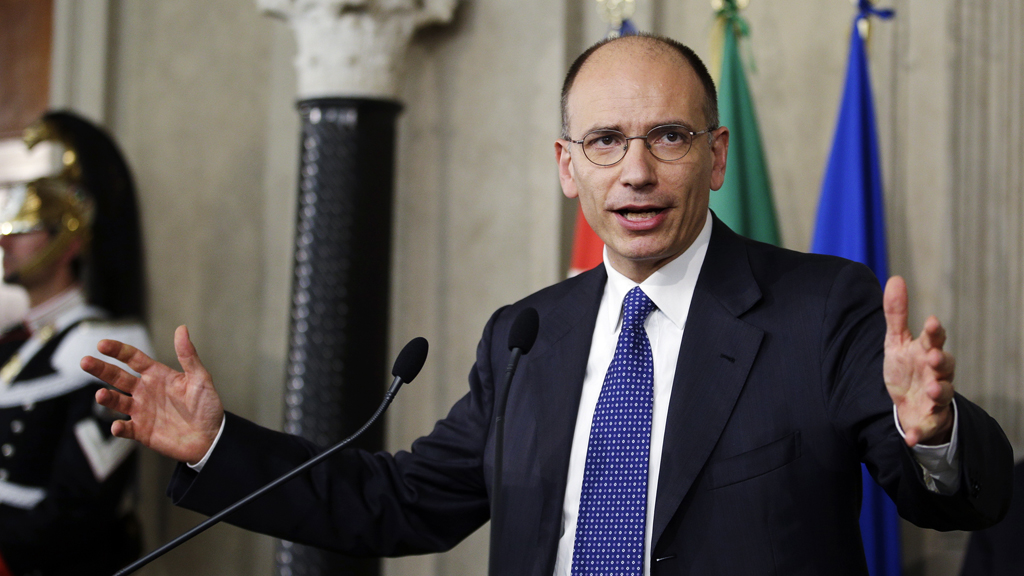Enrico Letta poised to become Italy’s prime minister
A new government could be formed in Italy within days after the Italian president named the centre-left deputy leader Enrico Letta as prime minister designate.

The announcement ended a damaging two-month vacuum in Italy since inconcusive elections.
Letta is expected to quickly select a group of ministers, mixed between politicians and technocrats, under the guidance of President Giorgio Napolitano, whose re-election last weekend opened the way for an end to the crisis.
The 46-year-old is moderate and pro-European, which is likely to please financial markets and Rome’s international partners.
Euro preparations
Letta will become the second youngest Italian prime minister since World War II, despite having been a member of the European political elite for many years, helping to prepare for Italy’s entry into the euro in the 1990s and serving in the European Parliament from 2004 to 2006.
He speaks fluent English and has a sound grasp of economics.
The new government will be backed primarily by Letta’s centre-left and the centre-right of former prime minister Silvio Berlusconi, which had so far failed to cut a deal following the elections in late February.
In accepting the job from President Giorgio Napolitano two months after February’s inconclusive election he made no attempt to hide the difficulties ahead for a country mired in deep recession and led by a discredited political class.
“I feel a strong responsibility on my shoulders, stronger than my shoulders’ ability to support it,” he told reporters at the president’s palace.
Budget flexibility
He said Italy’s politicians had “lost all credibility” and appealed to the whole of parliament to back his reform efforts, including convincing the European Union to change the direction of policy which he added is “too focused on austerity”.
One of his tasks as prime minister will be to try to negotiate more budget flexibility for Italy from the EU.
Letta, the PD’s deputy leader, was picked by Napolitano as a centre-left figure who would be acceptable to Berlusconi in a broad, right-left coalition like the one that backed outgoing prime minister Mario Monti.
His uncle is Gianni Letta, Berlusconi’s closest aide for over a decade. He succeeded Gianni as cabinet undersecretary when Romano Prodi beat Berlusconi at the 2006 election and the two men changed places again when Berlusconi won two years later.
Tough conditions
But in an early sign of the challenges ahead, within minutes of Letta being summoned by Napolitano, Berlusconi was already laying down tough conditions to support his government.
Letta had been mentioned for several days as an outside possibility for prime minister, but Napolitano’s favoured candidate was widely thought to be the 74-year-old former Socialist prime minister Giuliano Amato
In the end Letta’s youth and the fact that, unlike Amato, he was an elected politician may have tipped the balance.
Investors have already reacted with relief to the prospect of an end to the intractable crisis, with Italy’s borrowing costs on Wednesday tumbling to their lowest level since the start of European monetary union in 1999. However, the country’s problems are not over, with significant differences remaining between left and right over economic policy.
-
Latest news




